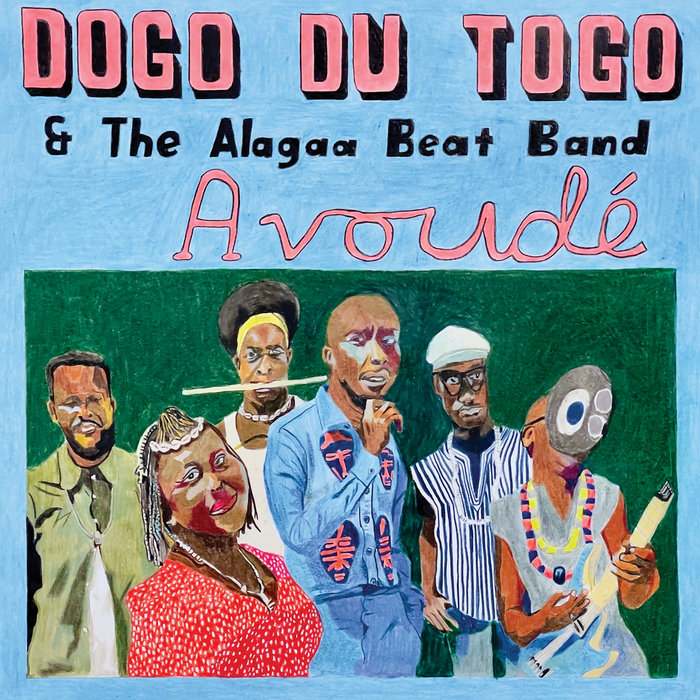
Enouwo Lagnon – Dogo du Togo & The Alagaa Beat Band
this blog is GROOVY – check out great Soul, Funk, Jazz, Hip Hop, Bass, Breaks , Reggae, House n many more TUNES
Let’s take a groovy journey into the heart and soul of West African music! This colorful genre has roots that stretch deep into history, vibrant enough to make even the stiffest folks wanna move. From its traditional beats to modern fusions, West African music is a treasure trove waiting to be explored. So grab your djembe and let’s get started!
West Africa isn’t just one musical style; it’s like a giant buffet of sounds. The region includes countries like Nigeria, Ghana, Senegal, Mali, and more—each adding their unique spice to the mix. Traditional music here dates back centuries and was often used for ceremonies, storytelling, and social gatherings.
One of the oldest forms you’ll find is Griot music. Griots are traveling poets who preserve oral histories through song—think of them as ancient hip-hop artists! Fun fact: these guys can really rap; they’re known for their incredible improvisation skills that would leave any freestyle champion sweating bullets!
What makes West African music so infectious? It’s all about those instruments! You’ve got:
And here’s something funny: Some musicians treat their instruments like pets! They believe talking to them or giving them special names will enhance performance. Imagine calling your guitar “Strummy McStrummerson” before a gig!
As time rolled on (and technology advanced), traditional sounds began mingling with new influences such as jazz and funk—hello Worldwide Fusion! Artists like Fela Kuti turned things upside down by blending political messages with Afrobeat rhythms. He used his stage not just for entertainment but also for activism; talk about using your platform wisely!
Here’s where it gets amusing: Fela was known for his outrageous stage outfits—including nothing but tight shorts—which led audiences to either cheer in appreciation or scratch their heads in disbelief!
In Ghana, we have Highlife, born around the early 20th century—it’s kind of like if jazz had a lovechild with traditional folk vibes while sipping palm wine at sunset! Musicians incorporated guitars and brass bands into lively performances designed to get folks up dancing.
On the flip side in Nigeria lies Juju music—a blend featuring Yoruba traditions married with Western styles reminiscent of rock ‘n’ roll vibes (but without losing that sweet polyrhythm). King Sunny Adé took this genre global; people were swooning over his catchy tunes…and sometimes swooning right off their chairs during live shows!
Fun fact alert: An early highlife star once burst onto stage dressed as an actual fish because he wanted “to catch” his audience’s attention—mission accomplished?
Fast forward into today’s bustling world where everything is connected—even genres are remixed faster than you can say “turntable!” In recent years, Afrobeats have taken center stage—a modern blend of hip hop infused with beats from across Africa.
Nigerian superstars like Burna Boy put West Africa firmly on radar beyond borders while emphasizing cultural pride—and guess what? Their dance moves may sometimes look so effortless they make you question if you’ve been doing it wrong all along.
Here comes another fun tidbit: Many artists use bizarre metaphors in lyrics which might confuse foreign listeners—the phrase “fishing in troubled waters” could literally mean catching fish during low tide or maybe trolling exes online…who knows?
Festivals celebrating West African culture showcase diverse talent—from local talents strutting on stages surrounded by cheering fans decked out in bright attire meanwhile passing around platters filled cinnamon-spiced yams (yum!). Notable festivals include Festival des Arts Nègres held every few years exploring all arts including our beloved rhythms—the atmosphere practically vibrates underfoot.
Also worth noting — some festival attendees mistaken elaborate hairstyles sported by performers as part-time brooms leftover from sweeping away negative energy instead leading us back toward funky grooves!
The history behind West African music paints vivid pictures steeped tradition yet embraces innovation—a true testament how art evolves while staying rooted within community spirit echoing authentic experiences experienced collectively together through rhythm year after year.
So next time you hear those irresistible beats playing—or see someone unexpectedly break out dance moves reminiscent more jazzy zebras than ballet dancers—just know you’re witnessing living magic straight outta West Africa’s rich musical tapestry woven carefully through generations past present future alike … keep grooving y’all!

Enouwo Lagnon – Dogo du Togo & The Alagaa Beat Band